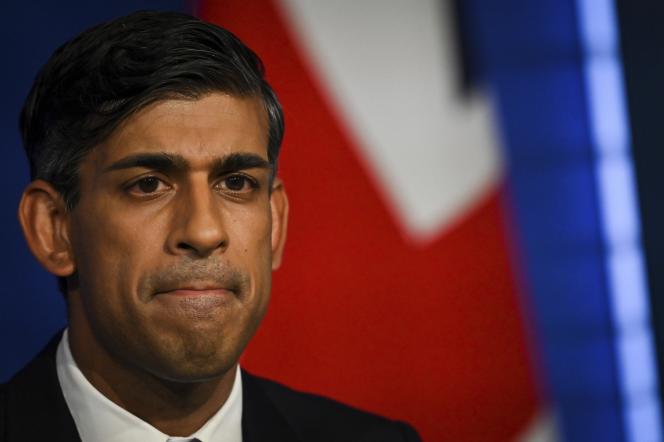Since entering 10 Downing Street almost a year ago, the Prime Minister, Rishi Sunak, has not shown zeal regarding environmental issues. He even seemed to be completely disinterested in it, unlike his predecessor, Boris Johnson. On Wednesday September 20, he moved from indifference to political exploitation by announcing to postpone the introduction of key measures for the United Kingdom to achieve carbon neutrality in 2050, in particular the switch to all-electric cars in 2030 However, this essential objective has been enshrined in national law since 2019 – the country was a pioneer by being the first, at the time, to make this ambition a legal obligation.
The goal of the conservative leader is transparent: while the Tories are between fifteen and twenty points behind Labor in the polls, about a year before the general elections, he wants to create a fault line with the British left party by presenting it as a spendthrift movement with little concern for the cost of the energy transition for citizens. The maneuver was considered cynical by Labor, who were not alone in reacting. With the exception of the right of the Conservative Party, ex-Brexiters turned climate skeptics, experts, industrialists, activists and even a good number of moderate conservatives regretted Mr. Sunak’s decision.
On Wednesday, therefore, from Downing Street, advancing an announcement planned for a few days after his intentions were revealed by the BBC, Mr. Sunak announced the postponement from 2030 to 2035 of the ban on sales of new cars with gasoline engines or diesel, and the postponement, also beyond 2030, of the end of the installation of gas and oil heating in homes. Low-income households will even be able to keep their equipment indefinitely. However, these measures are deemed necessary by the Climate Change Committee (CCC), the independent authority responsible for monitoring compliance with the British government’s carbon commitments to achieve its objectives in 2050.
A transition deemed too costly
“We remain fully committed to achieving carbon neutrality in 2050, but we want to support people in this transition”assured the 43-year-old prime minister, a former banker at Goldman Sachs, passed through Oxford then Stanford and reputed to be a “Thatcherite”or a follower of the less state advocated by the former Iron Lady, Margaret Thatcher in the 1980s. The same morning, defending the Prime Minister’s decision, Suella Braverman, his very radical Minister of the Interior, even claimed that“we will not save the planet by making the United Kingdom bankrupt”. Since, according to his reasoning, the country contributes little to overall greenhouse gas emissions, why impose a transition deemed costly on the British?
You have 56.59% of this article left to read. The rest is reserved for subscribers.
